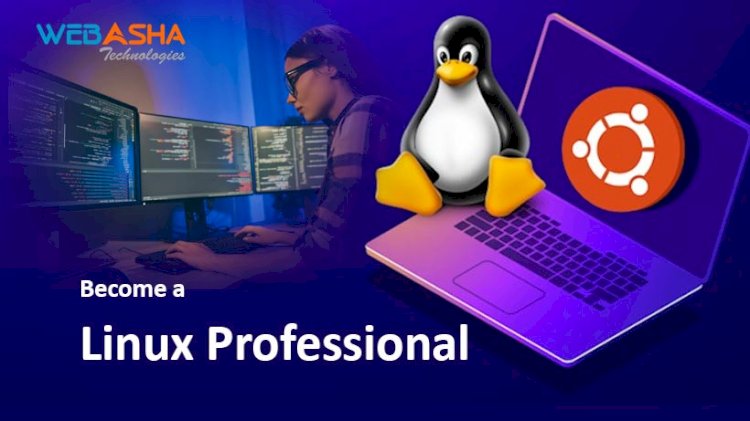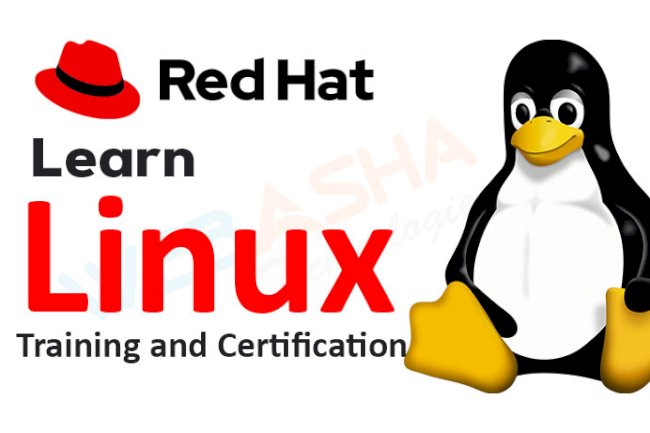Become a Linux Professional: Linux Training, Certification and Administration
Learn the skills needed to become a Linux professional with our comprehensive Linux training program. From Linux administration to command line and troubleshooting, our training covers everything you need to know to master the Linux operating system. Get certified and start your career in Linux today!

Linux is a powerful and versatile open-source operating system that is widely used in servers, desktops, and embedded devices. It is known for its stability, security, and flexibility. Linux is based on the Unix operating system and is designed to be compatible with a wide range of hardware platforms.
To become a Linux professional, one must have knowledge of Linux administration, command line, and troubleshooting. Linux administration is the process of managing and maintaining a Linux system, including installing, configuring, and maintaining the software and hardware components. It also includes monitoring the system's performance and security, as well as troubleshooting issues that may arise.
The Linux command line is a powerful tool that allows users to interact with the operating system. It is a text-based interface that allows users to perform various tasks, such as managing files and directories, running programs, and controlling system processes. Linux command line is also very useful for troubleshooting, as it allows users to access system logs and other diagnostic information.
Linux troubleshooting is the process of identifying and resolving issues that may arise on a Linux system. It requires a deep understanding of the operating system and the ability to diagnose and fix problems using various tools and techniques. Troubleshooting can include identifying and resolving software or hardware issues, as well as configuring and optimizing system settings to improve performance and security.
There are different Linux distributions available, such as Ubuntu, Redhat, Debian, and many more. Each distribution has its own set of features and tools. Ubuntu, for example, is known for its user-friendly interface and easy-to-use package management system. Redhat, on the other hand, is known for its enterprise-level features and support.
Virtualization is another important aspect of Linux administration. Virtualization allows multiple virtual machines to run on a single physical machine, which can greatly improve the efficiency and flexibility of a Linux system. Popular virtualization technologies include Docker and KVM.
Networking is also an important aspect of Linux administration. Understanding TCP/IP, DNS, and DHCP protocols is crucial for configuring and maintaining a Linux system that is connected to a network.
Linux security is a very important topic. Linux is known for its security features, but it still needs to be configured and maintained properly to protect against potential threats. This includes setting up firewalls, implementing access controls, and keeping software up-to-date.
Linux automation is also a useful skill for Linux administrators. Automation can save time and reduce errors by automating repetitive tasks and reducing the need for manual intervention. Scripting and automation tools such as Bash, Python, and Ansible can be used to automate Linux tasks.
Linux performance tuning is the process of optimizing the performance of a Linux system. This can include configuring system settings, optimizing the kernel, and monitoring system performance.
Linux cluster is a group of computers that work together as a single system. This can provide increased performance and availability. Clustering can be used for high-availability, load balancing, and other purposes.
Linux cloud is the use of Linux operating system in cloud computing. Linux is a popular choice for cloud infrastructure because of its stability, security, and flexibility. Popular Linux cloud providers include AWS, Azure, and Google Cloud.
In conclusion, Linux is a powerful and versatile open-source operating system that is widely used in servers, desktops, and embedded devices. To become a Linux professional, one must have knowledge of Linux administration, command line, troubleshooting, different Linux distributions, virtualization, networking, security, automation, performance tuning, clustering and cloud computing. There are Linux certification programs and Linux training available to learn about Linux.











![Top 10 Ethical Hackers in the World [2025]](https://www.webasha.com/blog/uploads/images/202408/image_100x75_66c2f983c207b.webp)



![[2025] Top 100+ VAPT Interview Questions and Answers](https://www.webasha.com/blog/uploads/images/image_100x75_6512b1e4b64f7.jpg)







